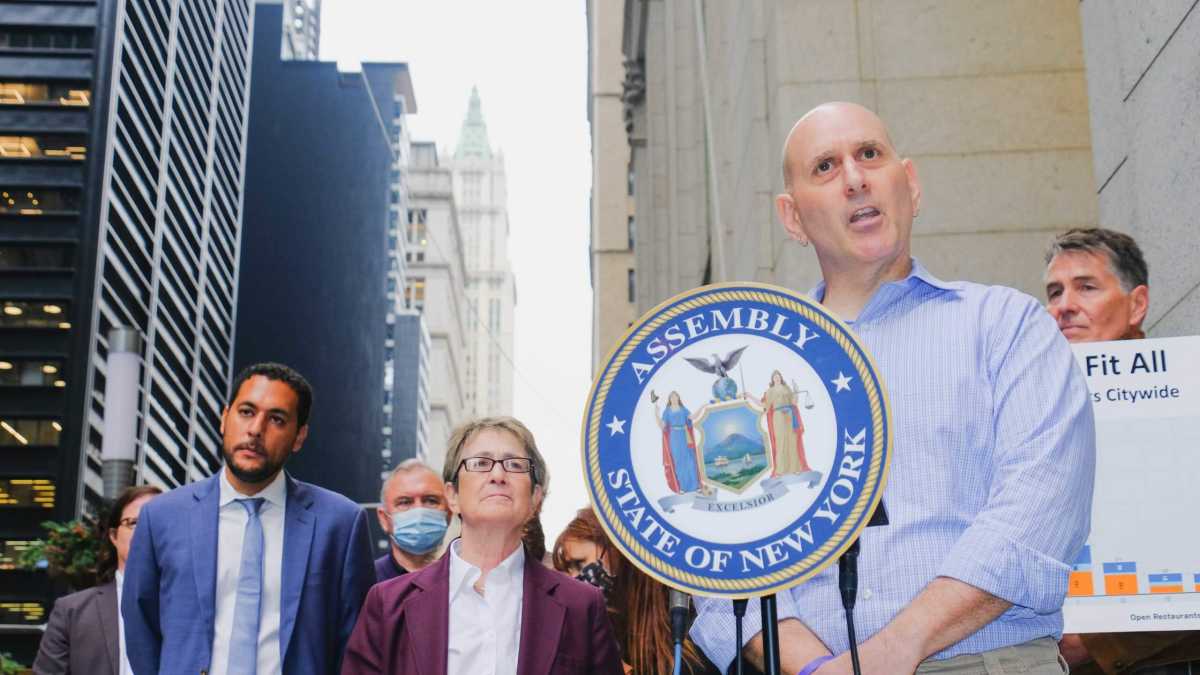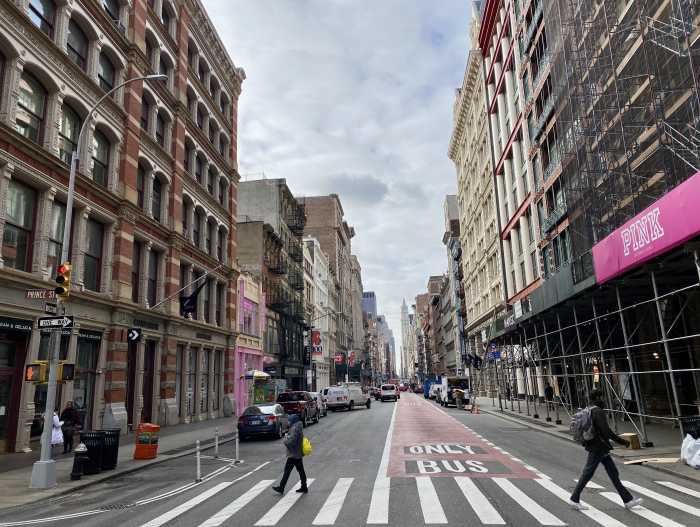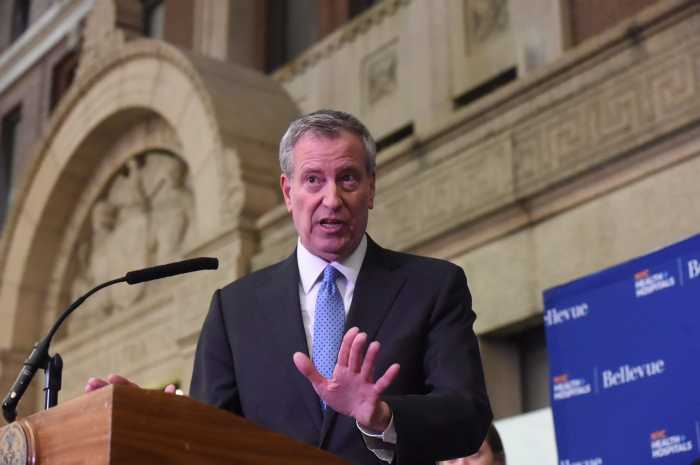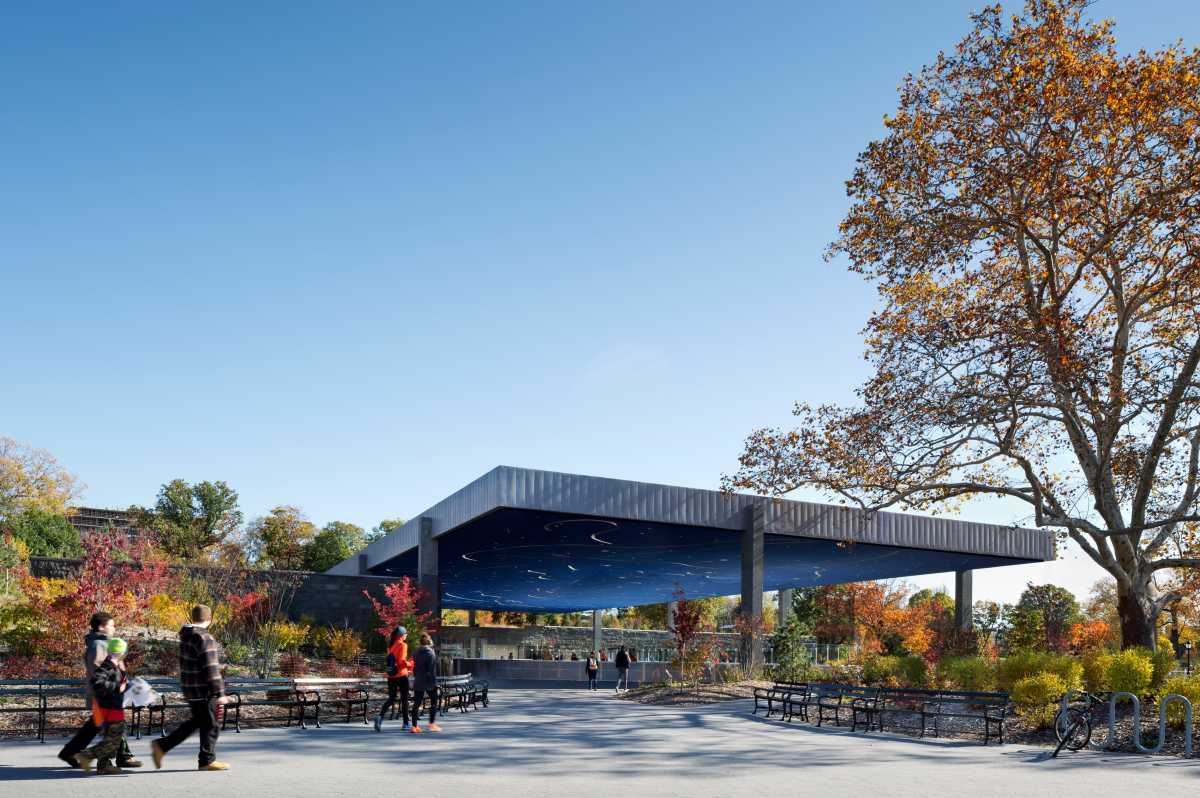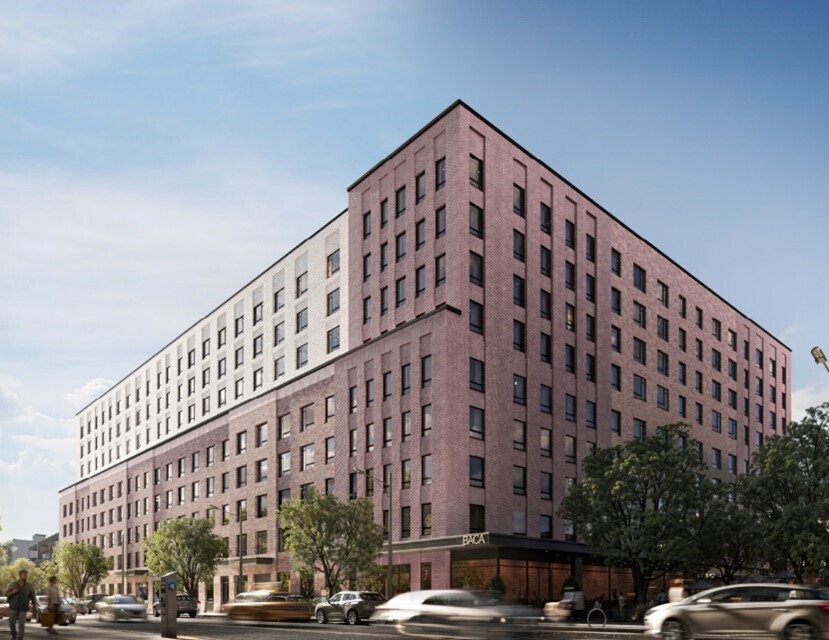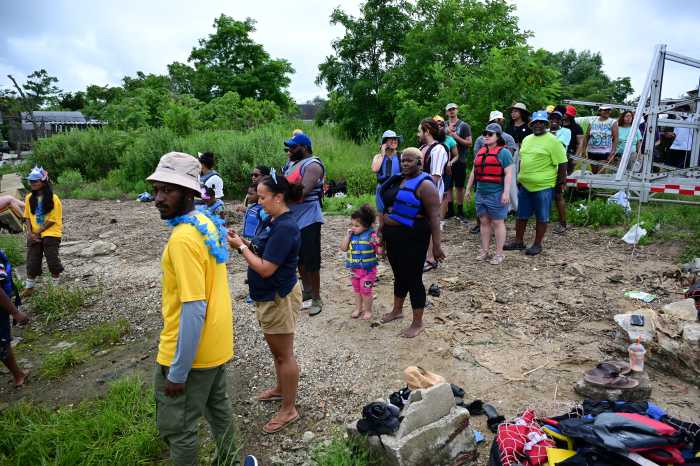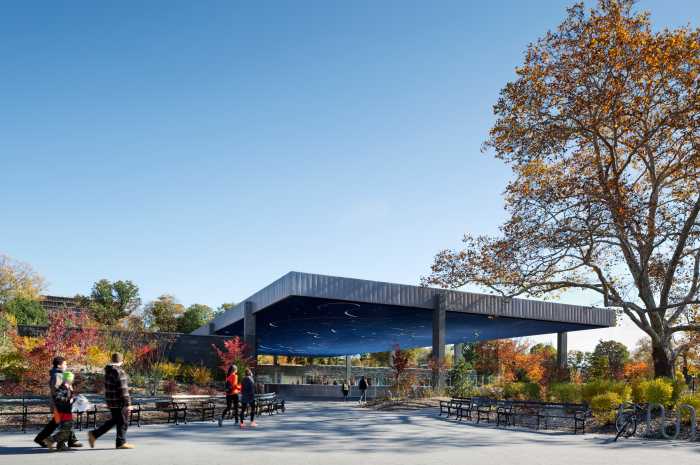The Department of City Planning is starting a design engagement process for a text amendment to establish a system for registering Open Restaurants on Tuesday, and by Wednesday morning Lower Manhattan officials were laying out their opposition.
Elected officials led by Assemblywoman Deborah Glick and leaders of community boards want stricter limitations on Open Restaurants which speakers claim make neighborhoods less livable in the abating pandemic, especially as sections of Lower Manhattan have seen the highest number of applications for the program.
“This is a permanent solution to a temporary problem, for only one industry – albeit a very powerful one – and it’s going to create permanent quality of life problems in our dense residential neighborhoods,” said Jeannine Kiely, chair of Manhattan Community Board 2. “There’s no geographic prohibitions and that will create huge quality of life problems… It will also allow open windows and facades for non-conforming industries in residential areas. This creates noise and makes it impossible for people to sleep and live their lives above bars and restaurants.”
It has been under public review since June.
The zoning text amendment will remove restrictions to where a sidewalk cafe can be located after the health emergency is declared over. The Department of Consumer and Workforce Protection (DCWP) will also be removed from overseeing the program which will require legislative change in City Council.
“Open Restaurants helped save thousands of small businesses from shuttering, it’s credited with saving 100,000 industry jobs, and providing New Yorkers the opportunity to safely socialize while dining alfresco over a great meal during the COVID-19 crisis,” said Andrew Rigie, executive director of the NYC Hospitality Alliance. “Now as the city transitions from the temporary, emergency outdoor dining program to permanent roadway seating, we commend and look forward to working with the Department of City Planning, Department of Transportation, and community stakeholders in a thoughtful public engagement process to develop the permanent Open Restaurants program that’s standardized, sustainable and transformative for our city’s streetscape, neighborhoods, economy and dining culture.”
Siting rules, a fee structure and an application review process for an entirely new roadway dining program will need to be developed as well by a task force, according to the DCP.
“Getting design right is among the most important elements of our coming Open Restaurants program – for our health and safety, and for our enjoyment of New York City’s public realm. To get it right, we need input from the public – you. So please, get involved and let’s make the Open Restaurants program even better,” DCP Director Anita Laremont said in a statement on Monday.
On Wednesday, demonstrators claimed that although the DCP and the city Department of Transportation have virtual and in-person roundtables planned, there should never have been a motion within city planning in the first place without seeking input from community leaders.
“Mixed-use neighborhoods where people live directly above these venues, they have been over-burdened with crowded sidewalks, excessive refuse, an explosion in rats, an inability to get deliveries easily or even take a cab close to home,” Glick said. “We feel that seating in public space to one industry for commercial use, that can only be enjoyed by those who can afford to use it and without any community review or input is just plain wrong.”
Before the text amendment can be fully implemented, it has to be passed through City Council and a set of rules must also be laid out by agencies through the City Administrative Procedure Act, or CAPA. In City Council, the text amendment has the support of Councilman Ydanis Rodriguez who chairs the transportation committee, as well as Keith Powers and Antonio Reynoso.
“They had plenty of time during the pandemic, they could have held [the roundtables] virtually. Where were the roundtables in the last 18 months,” Glick said.
The task force will be comprised of representatives from 12 city agencies who will work to create safe interactions between diners, drivers, cyclists and pedestrians, according to DCP.
The outreach process will be conducted with the help of the Regional Plan Association, Design Trust for Public Space and the Tri-State Transportation Campaign.



